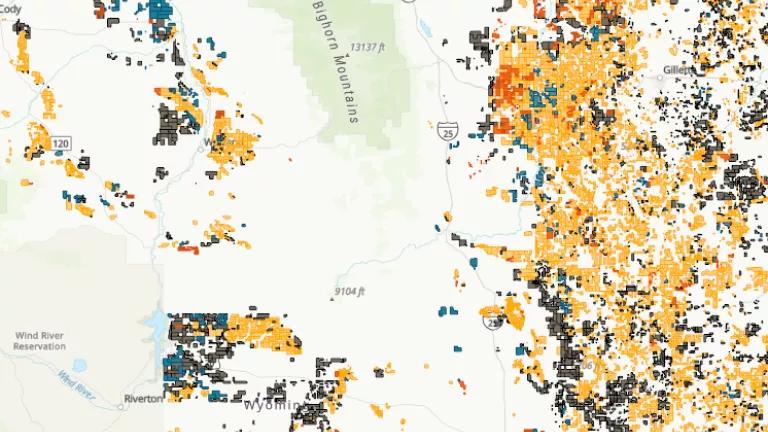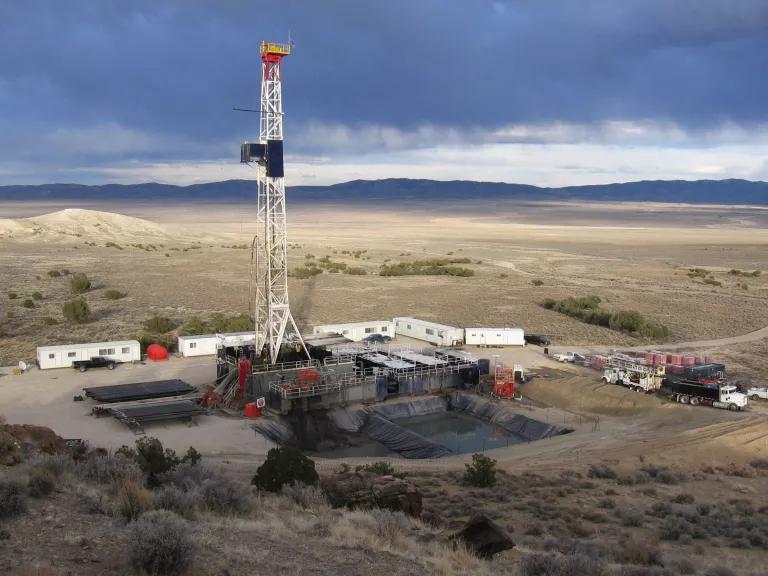Giving Away Our Lands as Americans Shelter in Place

Learn more about NRDC’s response to COVID-19.
While the public is terrified, grieving, and distracted by a worldwide health emergency and economic collapse, the U.S. government is taking the opportunity to sell our public lands at rock bottom prices.
The Department of the Interior (DOI) has defied repeated calls to stop the Trump administration’s reckless public land giveaway to oil and gas companies. Since March 13, when the Trump administration declared a national emergency because of COVID-19, DOI, through the Bureau of Land Management (BLM), has offered up more than 200,000 acres in five different lease sales in Mississippi, Montana, Nevada, Wyoming, and Colorado. And it is already barreling ahead with preparations for the next round of leases, scheduled for September. BLM manages these lands in the public trust, ostensibly for the benefit and enjoyment of all Americans, but is handing them over to oil and gas companies.
This is especially troubling at a time when the public has little if any ability to monitor, review, and protest BLM’s actions. BLM claims that there is no issue with carrying on its business as if nothing is going on, but officials appear to be using the cover of COVID-19 to escape public oversight and put hundreds of thousands of acres into the hands of the fossil fuel industry. Consider the New Mexico BLM office’s early insistence that it would only accept protests sent by mail (with no electronic filing option)—a policy that was reversed three days into a 10-day public protest period. Then there are the 10-day protest periods themselves, unreasonably short amounts of time for public participation that came under scrutiny even before this major disruption. Indeed, prior to January 2018, the period for public protest was 30 days (preceded by a separate 30-day public scoping period), a policy that BLM should seriously have considered reinstating, at the very least, after the official declaration of a national emergency.
It is especially astonishing to see a public lands giveaway of this scope, given the pandemic and the Saudi Arabia-Russia oil price war, that have triggered an historic freefall in the price of oil. Across the five states mentioned above, BLM attempted to lease nearly 213,000 acres, and succeeded in leasing only around 89,000 of those acres. That may sound hopeful, but two facts about BLM’s leasing process make the lack of interest in this sale a devastating blow for American taxpayers. First, the 124,000 acres not leased don’t just go back into the general public land acreage managed by BLM. Instead, they are now available for “non-competitive leasing,” meaning companies interested in leasing these areas can now do so for rock-bottom prices that leave taxpayers with virtually no financial benefit for handing over these vast areas to private interests. Second, many of the acres that were leased were snapped up for the minimum bid of $2/acre. Many have asked—as they should—how in the world fossil fuel companies and other extractive industries are getting away with gaining access to our public lands and mineral resources for prices not available in any competitive real estate market in the world.
And there’ve been other efforts to facilitate new oil and gas production on public lands during the pandemic. For example, BLM continues to process applications for permit to drill” (APDs), publish analysis for APDs, and proceed with issuing permits, apparently unabated. This is particularly alarming given BLM’s touting of its ability to conduct the majority of its business online with no need for a slow-down or interruption. This online process is happening without any ability to confirm whether necessary on-the-ground monitoring is taking place. It could also cut off legally-required and essential tribal government consultation which is often done face-to-face, and can take considerable time to appropriately conduct. And there’s no assurance that decisions on everything from oil and gas leasing to profound changes in agency rules are scientifically supported or consistent with observed environmental and ecological conditions. Even more concerning, the Government Accountability Office has repeatedly flagged BLM’s many failures of oversight when it comes to oil and gas lease management.
While the stewards of vast expanses of our public land fail to meet their duties, we’re also seeing intense lobbying efforts by the oil and gas industry for some sort of federal handout. Republican Senators and Representatives have called Secretary Bernhardt—himself a former oil lobbyist—this month to rush to the aid of companies producing oil on federal lands. They want to reduce or suspend royalty payments, rents, and other financial terms these companies are required to pay to the U.S. Treasury. Despite President Trump’s apparent lack of interest in taking this action, reports suggest that Secretary Bernhardt has promised to support these irresponsible giveaways if and when companies come asking.

American taxpayers would be on the hook if this happens, and corporate profiteers would run all the way to the bank. Rents and royalties paid to lease and produce oil and gas on these lands owned by all U.S. taxpayers provide a significant source of revenue to the U.S. Treasury, an institution that has now been tasked with doling out trillions of dollars of monetary relief to businesses, institutions, and the American people. If that revenue stream is cut off, even for a short period, it will mean an additional several billion dollars that taxpayers will eventually be responsible for repaying as the U.S. economy begins rebuilding after the pandemic.
It is a scandal to see Interior mismanaging our shared resources this way—and it is staggering that the government is doing so while the public has almost no ability to see and take in what is happening. The public land giveaway to polluters must stop.

